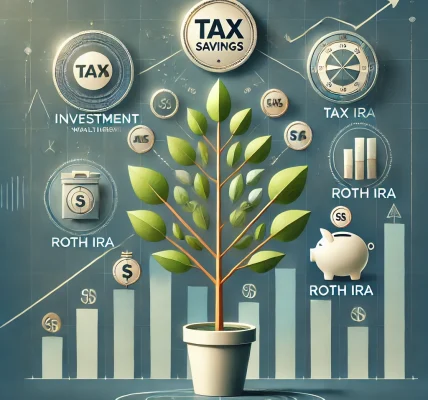As individuals age, it becomes increasingly important to plan their finances wisely, especially when it comes to taxes. For senior citizens, effective tax planning can significantly enhance their financial well-being and ensure that they are not paying more than they need to. Fortunately, there are a number of tax benefits and deductions available to senior citizens under the Indian tax laws that can help reduce their tax liability.
In this blog, we will explore the various tax-saving strategies available to senior citizens, including exemptions, deductions, and investment options that can maximize their financial benefits.
1. Understanding the Tax Structure for Senior Citizens
In India, senior citizens are defined as individuals who are 60 years of age or older. The tax laws provide special benefits to this demographic, allowing them to reduce their tax burden. Here is a breakdown of the tax structure for senior citizens:
- Basic Tax Exemption Limit: For individuals aged 60 and above, the basic exemption limit is higher than that for regular taxpayers. Senior citizens enjoy an exemption of ₹3 lakh on their income, while for individuals below 60 years, it is ₹2.5 lakh.
- Super Senior Citizens (80 years and above): Super senior citizens, i.e., those aged 80 years and above, get an even higher basic exemption limit of ₹5 lakh. This means that if a person is above 80, their income up to ₹5 lakh is not taxable.
2. Key Tax Deductions for Senior Citizens
There are several tax deductions available to senior citizens under various sections of the Income Tax Act that can be used to reduce taxable income. Let’s explore the most significant ones:
a) Section 80C – Deductions on Investments
Section 80C offers tax deductions for investments in specified instruments. Senior citizens can benefit from this section by investing in options like Public Provident Fund (PPF), National Savings Certificates (NSC), 5-Year Fixed Deposit with banks, and Employee Provident Fund (EPF). The maximum deduction allowed under Section 80C is ₹1.5 lakh per financial year.
b) Section 80D – Deductions for Health Insurance Premiums
Senior citizens often face increasing healthcare costs, making health insurance an important part of their financial planning. Under Section 80D, senior citizens can claim a deduction of up to ₹50,000 for premiums paid on health insurance for themselves or their family members. This limit is higher than the standard ₹25,000 deduction available to younger taxpayers.
Moreover, if the health insurance policy covers senior citizens (aged 60 years or above), the premium paid is eligible for an additional deduction of ₹50,000 under this section.
c) Section 80E – Deductions on Education Loans
If a senior citizen has taken an education loan for higher studies, they can claim a deduction under Section 80E for the interest paid on the loan. This deduction is available for a period of up to 8 years or until the interest is paid, whichever is earlier. This benefit can help senior citizens who have taken a loan to support their children or grandchildren’s education.
d) Section 80TTA – Deduction on Interest from Savings Account
Senior citizens who have a savings account can claim a deduction of up to ₹10,000 on interest earned from the savings account under Section 80TTA. This deduction is available for interest on savings accounts with banks, post offices, and cooperative banks. This benefit helps senior citizens reduce their taxable income from their savings.
e) Section 80TTB – Deductions on Interest Income for Senior Citizens
Section 80TTB is a special provision for senior citizens that allows them to claim a deduction of up to ₹50,000 on interest income earned from savings accounts, fixed deposits, and recurring deposits with banks, post offices, and cooperative banks. This is a significant benefit, as it helps senior citizens save on taxes on their interest income.
3. Tax-Free Income for Senior Citizens
Apart from the various deductions, senior citizens can also take advantage of some tax-free income provisions under Indian tax laws:
a) Senior Citizen Savings Scheme (SCSS)
The Senior Citizen Savings Scheme (SCSS) is a popular investment option for senior citizens that offers a high interest rate and tax benefits. The interest earned on SCSS is taxable, but it qualifies for a deduction under Section 80C, subject to the ₹1.5 lakh limit. The scheme provides regular income and is a safe, government-backed option for retirement savings.
b) Tax-Free Bonds
Senior citizens can also invest in tax-free bonds, which provide regular income that is completely exempt from tax. These bonds are issued by the government or government-backed entities and offer a fixed interest rate. The interest earned from these bonds is not subject to income tax, which makes them an attractive option for senior citizens looking to maximize their tax-free income.
4. Utilizing Capital Gains Exemptions
Senior citizens who sell their assets such as property, mutual funds, or stocks may incur capital gains taxes. However, there are certain exemptions available for senior citizens:
- Long-Term Capital Gains (LTCG): Senior citizens can avail exemptions on long-term capital gains from the sale of assets like property, stocks, or bonds. If the holding period of the asset exceeds 3 years, the LTCG tax is 20%, after factoring in indexation benefits.
- Capital Gains Exemption on Residential Property: If a senior citizen sells their residential property and reinvests the proceeds in another property, they can claim an exemption under Section 54 from paying capital gains tax.
5. Investment Strategies to Maximize Tax Savings
In addition to tax-saving instruments, there are other investment strategies senior citizens can consider to maximize their benefits:
a) Opt for Tax-Saving Fixed Deposits
Senior citizens can invest in 5-year fixed deposits to earn interest and claim tax deductions under Section 80C. These fixed deposits also offer a higher interest rate for senior citizens compared to regular deposits, making them an attractive option for generating income.
b) Diversify into Equity-Linked Savings Schemes (ELSS)
While senior citizens typically prefer safer investment options, some may consider Equity-Linked Savings Schemes (ELSS) for long-term tax savings. ELSS offers the potential for higher returns and tax deductions under Section 80C, making them a viable option for those with a higher risk appetite.
c) Diversification in Government Schemes
Apart from SCSS, senior citizens can also diversify their portfolio by investing in other government-backed schemes like Post Office Monthly Income Scheme (POMIS), National Savings Certificates (NSC), and Public Provident Fund (PPF), which offer attractive returns with low risk.
6. Conclusion
Tax planning is a crucial aspect of financial management for senior citizens, as it allows them to maximize their income and reduce their tax liabilities. With the special tax benefits, higher exemption limits, and a variety of tax-saving investments available, senior citizens have several opportunities to optimize their tax planning.




